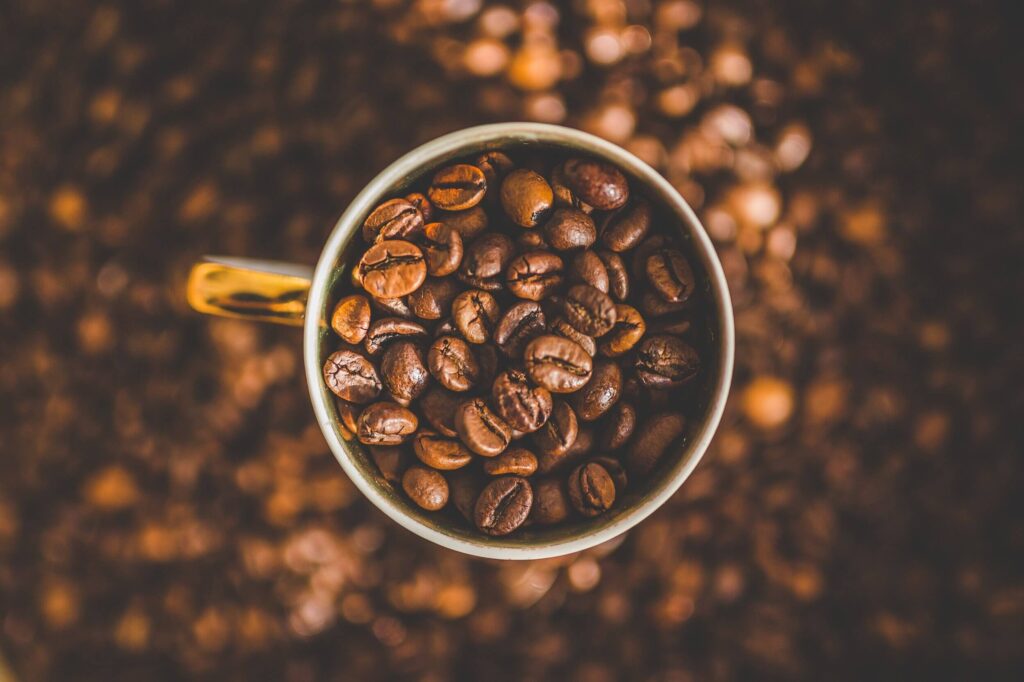It can be frustrating if you’ve noticed blood glucose spikes at night when using a CGM.
Metabolic health trackers – such as the Ultrahuman M1 – encourage users to flatten spikes and reduce variations in blood sugar levels, which are linked to improved health outcomes.
It’s common to see blood sugar rise during sleep – a phenomenon that has specific underlying causes and signatures.
Let’s dive into the causes of blood glucose spikes at night and ways to mitigate them.
Highlights
- The Dawn Phenomenon can increase blood glucose levels as the body gets ready to face the day. This might be recognized by some CGMs as a “spike.”
- The Somogyi Effect refers to blood sugar levels plummeting overnight before the body produces counter-regulatory hormones (glucagon, adrenaline, and cortisol) that raise blood sugar levels. This is usually found in those with diabetes.
- The best way to tell what’s causing high blood sugar levels overnight is by checking your blood glucose level between 2 a.m. and 3 a.m. using a CGM.
- By managing diet and stress, getting adequate exercise and sleep, and staying hydrated, you can prevent blood glucose levels from spiking at night.
- Spacing and timing of meals are crucial to preventing blood sugar spikes at night.
Learn about blood sugar nighttime spikes in this video
What causes blood sugar spikes at night?
High blood sugar at night often boils down to a late-night high-carb meal or snacking close to bedtime.
If your evening meal is high in fat and carb-heavy, this can delay blood sugar absorption. The body takes longer to process such meals, which can cause glucose levels to rise several hours after eating.
Those on diabetes medication who are not taking the right dose at the right time can also throw blood sugar levels out of whack.
However, there are biological mechanisms that can cause blood glucose levels to rise at night that aren’t connected to meal timing.
The Dawn Phenomenon
The Dawn Phenomenon or Dawn Effect usually occurs between 3 a.m. and 8 a.m. As the body prepares to wake, it prompts the liver to release more glucose into the blood for fuel.
This triggers the release of insulin, which helps regulate blood sugar levels and prevent them from rising too high. This process typically goes unnoticed in non-diabetics.
While the Dawn Phenomenon may show a slight rise in glucose levels on a CGM graph, it is usually within a healthy range and typically does not fluctuate by more than 20–30 points.
In people with diabetes, the body either doesn’t produce enough insulin or doesn’t respond to it effectively. As a result, blood sugar levels rise (a condition known as hyperglycemia), which is detected by continuous glucose monitors (CGMs).
The Somogyi Effect (Rebound Hyperglycemia)
The Somogyi Effect (or rebound hyperglycemia) refers to blood sugar levels plummeting overnight. When this happens, the body takes it as a cue to release the counter-regulatory hormones (insulin-antagonistic hormones that function against the action of insulin), glucagon, adrenaline, and cortisol to raise blood sugar levels in order to keep them from falling too low. Sometimes, there is an over-correction that actually leads to hyperglycemia or elevated blood glucose levels.
The Somogyi Effect is usually found in those with diabetes, who cannot regulate blood sugar.
Use your CGM to analyze blood sugar spikes at night
If your blood glucose runs high overnight, the best way to identify the cause is to check your levels between 2 a.m. and 3 a.m. A low reading at that time, followed by a rebound spike, suggests the Somogyi effect.
A high reading that stays within a healthy range — typically under 100–125 mg/dL (5.6–6.9 mmol/L) according to the ADA — suggests the Dawn Phenomenon.
Tracking your glucose levels before going to bed, between 2 a.m. and 3 a.m., and again first thing in the morning, through continuous glucose monitoring (CGM) or a finger-prick test, can help you take the necessary steps to check any blood glucose imbalance.
5 ways to prevent blood glucose spikes at night
1. Manage your meal timing

Research shows that a low-carb, high-protein diet rich in omega-3 fatty acids can help reduce glucose spikes by lowering the glycemic load and improving insulin sensitivity (Gannon & Nuttall, 2004; Westphal et al., 2006).
Meal timing also matters. Eating close to bedtime – especially within three hours – is associated with elevated nighttime glucose levels. Glucose levels tend to be higher after evening meals than in the morning due to reduced insulin sensitivity later in the day.
With the Somogyi Effect, time-restricted eating and intermittent fasting have proven effective in managing blood glucose levels. When fasting, the body uses stored energy rather than using glucose from recent meals.
Regularly tracking glucose levels, understanding foods that trigger spikes, and consulting a professional nutritionist are all good first steps in planning a diet that’s right for you.
2. Managing stress and sleep
In response to acute stress, the body releases epinephrine (adrenaline), which triggers the breakdown of glycogen into glucose — a process known as glycogenolysis — leading to a rapid rise in blood sugar.
When stress is prolonged, cortisol (released after the initial epinephrine surge) sustains this response. Often referred to as the “stress hormone,” cortisol helps the body cope with long-term challenges but also raises glucose levels and reduces insulin sensitivity.
This response is similar during periods of sleep deprivation. When we’re running on limited rest but still pushing through the day, cortisol helps us stay alert and functional — but at the cost of increased blood glucose.
Incorporating stress-management techniques like meditation, deep breathing, and prioritizing 7–9 hours of high-quality sleep can significantly support overnight glucose stability and overall metabolic health.
3. Getting the right amount of exercise

Too little physical activity can lead to elevated glucose levels, but over-exercising can also trigger spikes due to stress hormone release. The goal is balance: moderate or low-intensity exercise is generally most effective for lowering blood glucose, especially overnight.
Research suggests that a 20-minute, low-intensity treadmill walk after dinner can significantly reduce post-eating glucose levels in people with type 2 diabetes (Colberg et al., 2016). Exercising earlier in the evening may also help improve glucose stability into the following morning.
4. Stay hydrated
When you’re dehydrated, the body releases vasopressin — a hormone that prompts the liver to produce more glucose and signals the kidneys to retain water. This combination both raises blood sugar and reduces the body’s ability to flush out excess glucose.
Unsurprisingly, elevated vasopressin levels are linked to poorer glycemic control. One study published in Diabetes Care found that individuals consuming less than one liter of water per day had a higher risk of developing hyperglycemia.
5. Maintain good oral hygiene
Gingivitis and gum disease can contribute to elevated blood glucose levels, particularly overnight.
Recent studies show that bacteria from infected gums can enter the bloodstream, triggering the body’s immune response. This, in turn, releases inflammatory molecules that have widespread effects, one of which is increasing blood glucose levels.
Maintaining good oral hygiene is therefore crucial for blood sugar control, highlighting the link between oral health and metabolic regulation.
Conclusion
High glucose levels at night or glucose spikes at night can occur for a variety of reasons. While a late-night carb-heavy meal is often the culprit, the Dawn Phenomenon or Somogyi Effect can also play a role.
In the Dawn Phenomenon, rises in blood sugar are simply the body preparing to wake up – but these are unlikely to be out of range.
The Somogyi Effect, however, can see hyperglycemic events from the body overcompensating from low levels, in people with diabetes.
Monitoring glucose levels between 2 a.m. and 3 a.m. is the best way to distinguish between potential hyperglycemia induced by the Dawn Phenomenon and the Somogyi Effect.








